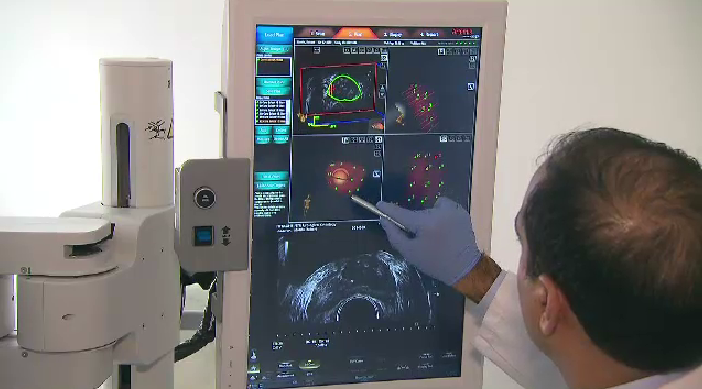
September of last year, Health Canada gave a new prostate cancer treatment approval for patients with advanced metastatic cases.
It’s called PLUVICTO (lutetium (177lu) vipivotide tetraxetan injection) which uses a radioactive particle to attack a certain type of cancer protein. But doctors say there are hurdles ahead for eligible patients to access the treatment, as its approval is just step one.
Prostate cancer is one of the most commonly diagnosed cancers in men. In 80 per cent of cases, the cancer cells have a surface protein called prostate-specific membrane antigen or PSMA. PSMA is the biomarker or target for PLUVICTO.
“I know that our nuclear medical physicians are extremely aware of this,” said Dr. Piotr Czaykowski, a medical oncologist at CancerCare Manitoba. “We have regular conversations with them about this. We know they’re keen to try and implement this as soon as it’s something we can implement.”
Czaykowski said this type of technology is already used in the province for a rare type of cancer called neuroendocrine tumour but getting PLUVICTO out to late-stage prostate cancer patients through the public system will take more time.
“Right now where this sits, is there are negotiations underway to establish a price and once that’s in place then we have the opportunity to start trying to provide this,” he said.
A provincial spokesperson said, PLUVICTO has also received a positive recommendation from the Canadian Agency for Drugs and Technologies in Health (CADTH) but it still needs to undergo national negotiations through the panCanadian Pharmaceutical Alliance.
“Only after those negotiations are completed and an agreement is in place with the manufacturer, will Manitoba list the product in the oncology drug formulary,” reads the written statement.
Although it’s not available publicly, Canadians can choose to pay out of pocket for the treatment. At a private clinic in Burnaby, B.C., two patients received PLUVICTO treatments this week.
“The way we describe this is we see what we treat and we treat what we can see,” said Dr. Philip Cohen, a nuclear medicine specialist and the medical director at INITIO Medical.
He said the price for the compound, whether being bought by the government or a patient, is $27,000 a dose.
“What I am hopeful for is, as more compounds will make it through the approval process, the cost will plummet and hopefully will become more affordable,” said Cohen.
While optimistic for what nuclear treatments might be able to accomplish in the cancer realm, he points out another major issue that may make accessing this type of treatment difficult in Canada. A Positron Emission Tomography or PET scan is required to screen patients.
“There’s probably an adequate number in Quebec but outside Quebec there’s real limitations to access to pet scanners,” he said.
According to Shared Health there is only one PET scanner in Manitoba at Health Sciences Centre.
Czaykowski says while PLUVICTO is not a home run or a cure, it will be well worth offering to eligible late-stage prostate cancer patients.
“In the studies that have been done, and there was a large trial where half the patients got this therapy and the other half didn’t, those who got the therapy lived about five months longer,” he explained.
Adding, once there’s the science to support it, there is the potential for the agent to be used earlier during the course of treatment.
